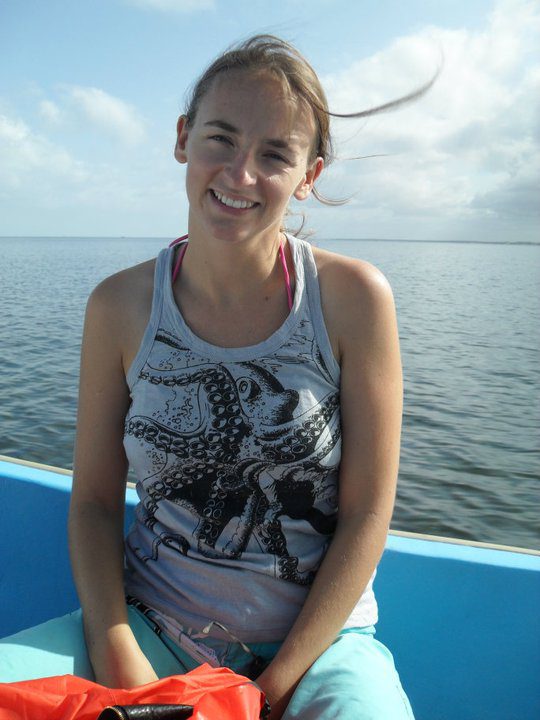In the eleventh instalment in our series of Q&As with Blue Ventures staff, we ask Sophie Benbow, our Sustainable Fisheries Programme Manager, some searching questions about science, conservation and superpowers…
What is your background?
I originally started, as I think probably about half of wannabe marine biologists do, with a love for cetaceans. I volunteered with projects wherever and whenever I could, and developed research projects for both my undergrad (BSc Zoology) and masters theses around these wonderful creatures. Following my MSc in Conservation I started working as an intern in the London office of Blue Ventures and the rest, as they say, is history!
Why do you do what you do?
Sometimes I do wonder exactly that. There are certainly a huge range of challenges to working in conservation, but what it comes down to is working for something that you believe in. If we could all learn to treat our planet with respect there wouldn’t be a job for people like me, but as long as there are people who value themselves over nature I will be here, trying to put everything right and ensuring that coastal subsistence communities have enough fish to eat and octopus to catch.
What is the best/worst thing about being a conservation scientist/working in conservation?
The worst things about my job are the frustrations of dealing with bureaucracy, the language barriers and the fact that while I live in an amazing place I spend more than 8 hours a day, often 6 days a week behind a desk which is not, I am sure, how my friends and family envision I spend my days!
The best thing about my job are the odd days when I get back to the field and remember why I put up with all the bad things! Spending time with the communities, the fish, coral and octopus. Just an hour in the field slots everything straight back into perspective. This country is amazing, and it needs whatever help we can provide.
What do you enjoy most about your job?
Working and supporting students and teaching people new things. The joy of explaining excel pivot tables to Malagasy students is quite brilliant, knowing that if they are going to continue to pursue a career in conservation you have likely changed their working life.… We also work with colleagues and partners who have yet to be introduced to the wonders of track changes in word… I tell you. Life changing…
What is your favourite species or group of species and why?
I still love the cetaceans, that is dolphins and whales to those non-scientists, and my heart always does a little leap when I see these fabulous creatures. I also have minor love affairs with black saddled tobies and ‘wonderful, wonderful slingjaw wrasses’ but if any of you are in doubt about how blummin’ cool the humble octopus is then check them out here. Not only can they change colour to match the substrate, mimic 15 different marine species including the mighty lion fish, escape through tiny cracks and holes and walk on land making them a huge challenge to aquarium owners; last, but by no means least, when the question of who is cooler, stronger and better between an octopus and shark comes up, just watch this movie, it will blow your mind. All hail the octopus!
What would your science superpower be?
The power to put the money in the right place so that it can achieve everything it was destined to achieve. Failing that I would really love to be able to breathe underwater – it would certainly reduce the costs of coral reef monitoring!
What is one of the strangest things that has happened to you while working on conservation?
Being ambushed by a lemur after my morning shower in a remote fishing village about 100 km south of Toliara; when I returned to my room after the shower the lemur was sitting on my bed playing with my toothbrush!


